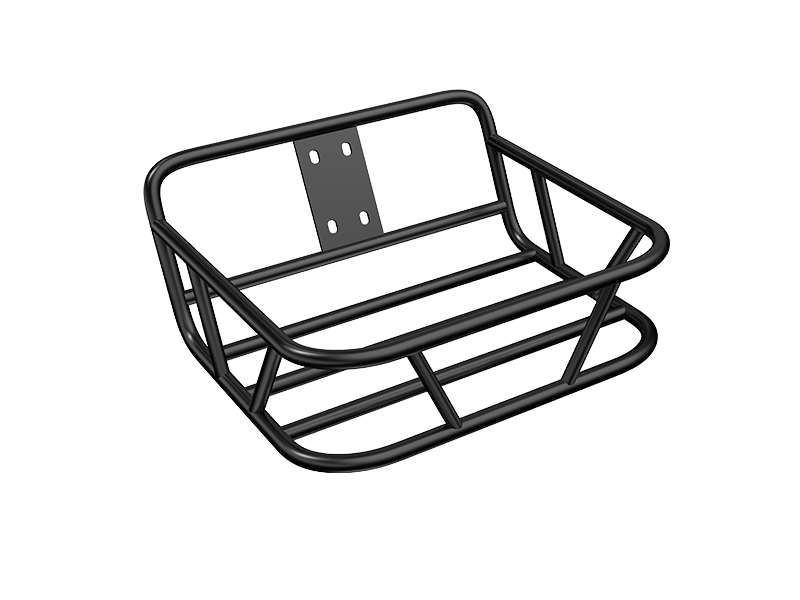Mechanical Vs. Hydraulic Brakes: How To Choose
MAY 30, 2024
When it comes to choosing the right braking system for your bicycle, you have two main options: mechanical brakes and hydraulic brakes.The best choice for you will depend on your riding style, maintenance preferences, and budget. We’ll break down the differences between mechanical and hydraulic brakes to help you make an informed decision.
Understanding Mechanical Brakes
Mechanical brakes, also known as cable-actuated brakes, use a steel cable to connect the brake lever to the brake caliper. When you squeeze the brake lever, it pulls the cable, which in turn pulls the brake pads against the rim (in the case of rim brakes) or rotor (in the case of disc brakes).
Pros of Mechanical Brakes
-
Simplicity: Mechanical brakes are simpler in design and easier to understand. This makes them a popular choice for those new to cycling or those who prefer a straightforward system.
-
Ease of Maintenance: Because they rely on cables and simple mechanisms, mechanical brakes are generally easier to maintain and repair. You can easily replace worn cables and adjust the tension without needing specialized tools or knowledge.
-
Cost: Mechanical brakes tend to be more affordable than their hydraulic counterparts. If you’re on a tight budget, mechanical brakes can offer reliable performance without breaking the bank.
Cons of Mechanical Brakes
-
Performance in Wet Conditions: Mechanical brakes can be less effective in wet or muddy conditions. The cables can become contaminated with dirt and moisture, leading to decreased braking power.
-
Modulation: Modulation refers to the ability to precisely control the amount of braking force. Mechanical brakes often have less modulation, making it harder to apply gradual braking force.
Understanding Hydraulic Brakes
Hydraulic brakes use fluid to transfer force from the brake lever to the brake caliper. When you squeeze the brake lever, it pushes fluid through a sealed system, which then pushes the brake pads against the rotor.
Pros of Hydraulic Brakes
-
Superior Braking Power: Hydraulic brakes offer more powerful and consistent braking. The fluid transfer system is more efficient, providing better stopping power with less effort.
-
Excellent Modulation: Hydraulic brakes excel in modulation, allowing for smoother and more controlled braking. This is particularly beneficial for technical riding and in varying terrain conditions.
-
Low Maintenance: While initial setup can be more complex, hydraulic systems are generally low maintenance. They are sealed and less prone to contamination, requiring less frequent adjustments and repairs.
Cons of Hydraulic Brakes
-
Complexity: Hydraulic brakes are more complex and can be intimidating for those unfamiliar with their operation. Repairs and maintenance can require specialized tools and knowledge.
-
Cost: Hydraulic brake systems are usually more expensive than mechanical ones. This higher cost can be a deterrent for budget-conscious cyclists.
-
Potential for Leaks: Although rare, hydraulic systems can develop leaks. A leak in the system can significantly reduce braking performance and require immediate attention.
How to Choose
When deciding between mechanical and hydraulic brakes, consider the following factors:
-
Riding Style: If you frequently ride in technical terrain, downhill, or in wet conditions, hydraulic brakes may offer the superior performance you need. For casual riders or those who mainly ride on flat, dry surfaces, mechanical brakes can be more than sufficient.
-
Maintenance Preferences: If you prefer a low-maintenance system and don’t mind the initial complexity, hydraulic brakes are a good choice. If you enjoy tinkering with your bike and want a system that’s easy to adjust and repair on your own, mechanical brakes might be better.
-
Budget: Mechanical brakes are the way to go if you’re looking for a cost-effective solution. They provide reliable braking performance at a lower cost. However, if you’re willing to invest more for better performance and lower long-term maintenance, hydraulic brakes are worth considering.
-
Experience Level: For beginners, mechanical brakes offer simplicity and ease of use. More experienced cyclists who are comfortable with bike maintenance may appreciate the advanced performance of hydraulic brakes.
Choosing between mechanical and hydraulic brakes ultimately comes down to your personal preferences and riding needs. Mechanical brakes offer simplicity, ease of maintenance, and affordability, making them ideal for casual riders and beginners. On the other hand, hydraulic brakes provide superior braking power, excellent modulation, and low maintenance, which can be a game-changer for technical and demanding rides.
Evaluate your riding style, maintenance comfort level, budget, and experience to make the best decision for your cycling adventures. Whether you opt for mechanical or hydraulic brakes, ensuring they are properly installed and maintained will keep you safe and enhance your riding experience.












